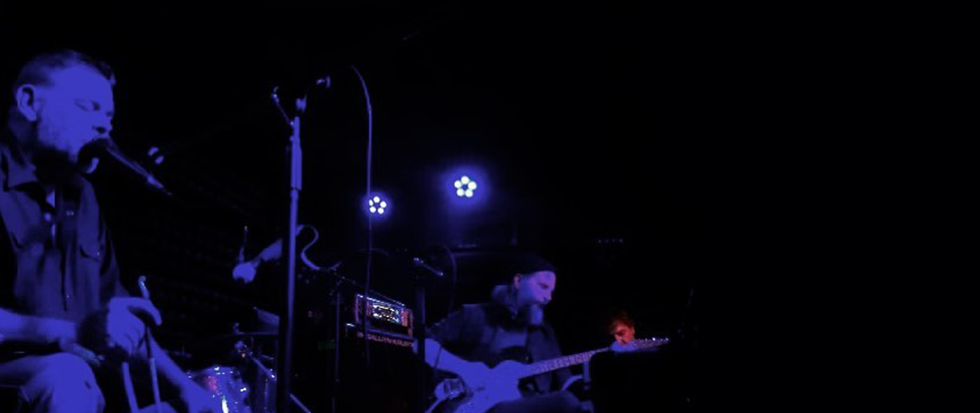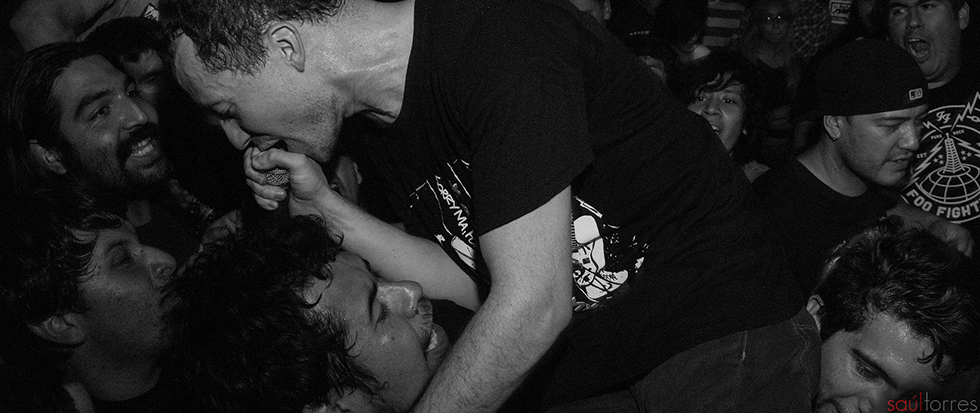
California Gothic
Even before it was a dirty word, “emo” was ill-defined. Most serious accounts with the phrase and genre place it at the feet of Rites of Spring, the proto-Fugazi band that dared D.C.’s hardcore scene to feel something other than fury. Of course they rejected that label, as many did when “emo” gained prominence, however widely and indiscriminately applied.
Despite a burgeoning love of Fugazi, I was unfamiliar with Rites of Spring at the time, so instead my first real interaction with the term “emo” came at the request of some show buddies who wanted to hoof it down to Fort Collins to see who was playing at the Starlight. On this frigid night, maybe even under some red lights, the promoter waved us over and asked in a conspiratorial whisper if we wanted to see a real emo show. The Black Heart Procession, who I did not know and at this moment was wildly unprepared for, crowded the stage with towering drums, multiple keyboards, a coterie of the regular rock noisemakers, and too many players for the whispering waft I was hearing. It was only as my eyes adjusted that I made out a saw, slowly bent and bowed to weep through the PA. The sound was perfectly autumnal, vagabond rags fluttered into the night, and to my eternal shame, I wasn’t ready. None of us could handle the distinct lack of gain and distortion, so our dumb young crew hustled out into the night to kill some stacks at Waffle House or something equally immemorable.
I’m not saying that you have to be older to appreciate The Black Heart Procession, but it’s a band that trades in weary reflection. They cut six albums in their time and recently added to that a collection of their “Waiter” songs as a kind of greatest hits centered around a messenger motif who materialized throughout the band’s discography like an undead Greek chorus. Their slow California apocalypse was more or less locked in through the first three, named per numerical order, but got a little more traditionally rock after that. On one obvious level they’re all perfect funereal records, though they also frame the extremities of my emotions, having carried me through so much.
I’ve never professed to have a great breadth of musical knowledge or tastes. Bands that growl are my primary interests, but I swing around to whatever whips me up in the moment. I’m not even sure how or when I gave The Black Heart Procession another chance after so callously and foolishly dismissing them in the late 90’s, a dumb pre-adult too much of a coward to confront his own threshold for despair. A few heartbreaks and hard times later, the glittering pianos, threaded and gain-free guitars, and plaintive warbles just set my soul to shining.
Because music as catharsis can often be counter-intuitive: outside their howling graveyard ambience, The Black Heart Procession is also my perfect summer band, the group I listen to when I’m often happy and feel I need some perspective on that happiness. They subsume the wind-strewn textures of American Gothic, haunted rest stops and palm tree temporal displacement, hearts given freely only to be stitched and stomped in turn. It’s the same swampy air that floats Lana Del Rey’s cracked, rose-tinted glasses, but with more squealing swingsets and less of a golden hour halo.
Nearly twenty years later, I’m afforded the chance to correct the failings of my youth and catch The Black Heart Procession on tour again. Out promoting The Waiter Chapters I-VIII, it feels like I’m going back in time to slap my younger self, take in the ragged cemetery stomps and drifting muted melodies. Back then I wasn’t ready, thanks to the hubris of youth, but I’ve since learned that love and tragedy thrive in poor timing. The Waiter and I, we’re in it for the long haul—to march at night under the thud of a bruised but still-beating heart.





